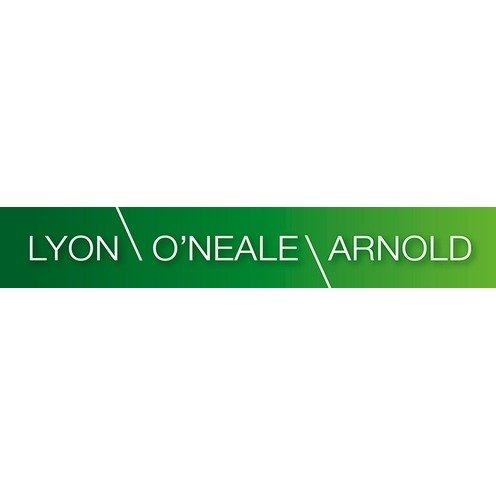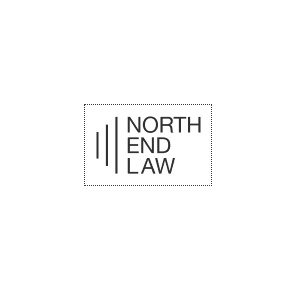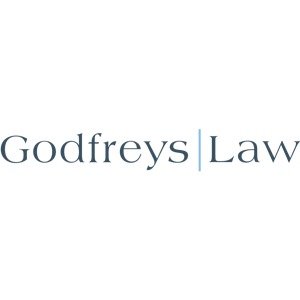Best Public-Private Partnerships (PPP) Lawyers in New Zealand
Share your needs with us, get contacted by law firms.
Free. Takes 2 min.
Or refine your search by selecting a city:
List of the best lawyers in New Zealand
About Public-Private Partnerships (PPP) Law in New Zealand
Public-Private Partnerships, commonly known as PPPs, are collaborative agreements between government entities and private sector companies to deliver public infrastructure and services. In New Zealand, PPPs have been increasingly used as a way to develop and manage critical infrastructure projects, such as schools, prisons, health facilities, and transport networks. The PPP model leverages the strengths of both public oversight and private sector efficiencies, aiming to provide best-value outcomes over the life of the project. PPP arrangements in New Zealand are typically governed by a network of laws, regulations, contracts, and policies established at both the national and local government levels.
Why You May Need a Lawyer
Legal advice is highly recommended when dealing with PPPs, given their complexity and long-term commitment. Here are common situations where professional legal help is crucial:
- Assessing whether a PPP is the right delivery model for your project or involvement
- Responding to or preparing tender documents and Requests for Proposals (RFP)
- Negotiating and drafting PPP agreements, including risk allocation and performance requirements
- Ensuring compliance with government procurement policies and laws
- Addressing issues with project financing, delivery milestones, or performance outcomes
- Resolving disputes between public and private partners
- Understanding the implications for asset ownership, maintenance, and lifecycle management
- Managing changes in law or policy that impact PPP obligations
Given these specialized aspects, early legal advice can help mitigate risks and ensure project success.
Local Laws Overview
In New Zealand, PPPs are governed primarily by the Public Finance Act 1989, the Government Procurement Rules, and sector-specific statutes depending on the nature of the project (such as the Education Act, the Corrections Act, or transport legislation). The government operates a structured PPP program, with the Treasury’s Infrastructure Transactions Unit (ITU) playing a significant role.
Some key aspects of local law relevant to PPPs include:
- Strict procurement rules designed to ensure transparency, value for money, and fair competition
- Detailed contractual frameworks that define risk-sharing, payment mechanisms, and penalties for non-performance
- Requirements for public sector comparators to guarantee PPP offers better value than traditional approaches
- Long-term contractual commitments, often for 20 to 30 years
- Statutory obligations on government agencies for reporting, oversight, and contract management
- Potential application of other legal areas, such as environmental law, resource consents, and construction law
Frequently Asked Questions
What is a Public-Private Partnership in New Zealand?
A PPP in New Zealand is a long-term contract between a public sector agency and a private company. The private company designs, builds, finances, and sometimes operates and maintains a public asset or service, while the government oversees service delivery and pays for performance over time.
What types of projects are commonly delivered through PPPs?
PPPs in New Zealand are most often used for large-scale infrastructure projects, such as schools, prisons, transport projects (roads, rail), and some health and housing facilities.
Are PPPs regulated by specific laws in New Zealand?
PPPs are governed by a range of laws, including the Public Finance Act, sector-specific statutes, and the Government Procurement Rules, rather than a single dedicated PPP Act.
How are risks allocated in a PPP?
Risks in PPPs are typically allocated to the party best able to manage them. For example, construction risk may fall with the private partner, while demand or policy risks may remain with the public sector.
How long does a PPP contract usually last?
Most PPP contracts in New Zealand last between 20 and 30 years. The exact term depends on the type of project and the required service outcomes.
What are the government’s procurement rules for PPPs?
Government agencies must follow the Government Procurement Rules, which prioritize open, fair, and transparent processes. Rules also stipulate how value for money is assessed and how suppliers are evaluated.
Do PPPs involve private ownership of public assets?
Typically, ownership of the underlying asset remains with the public sector, but usage rights or operational control may be assigned to the private partner for the contract term.
How are payments structured in PPP agreements?
Payments are generally based on the private partner’s performance in delivering agreed services, rather than a lump sum. There may be deductions for non-performance or failure to meet standards.
Can changes be made to PPP contracts after signing?
Yes, PPP contracts can be amended, but both parties must agree to any changes. Amendments must comply with procurement rules and relevant legal requirements.
What happens if disputes arise in a PPP project?
Most PPP contracts contain detailed dispute resolution procedures, including negotiation, mediation, and arbitration. Legal assistance is often essential if disputes escalate.
Additional Resources
If you need more information or assistance regarding PPPs in New Zealand, consider contacting or reviewing resources from the following:
- Treasury - Infrastructure Transactions Unit
- Ministry of Business, Innovation and Employment (MBIE) - Government Procurement
- New Zealand Law Society
- Chambers specializing in construction and commercial law
- Relevant industry groups, such as Infrastructure New Zealand
- Your local council or government agency managing a PPP
Next Steps
If you are considering involvement in a PPP project or need legal advice about an existing agreement, take the following steps:
- Identify your specific questions or concerns related to the PPP
- Gather any relevant documents, contracts, or correspondence
- Reach out to a lawyer or law firm with expertise in PPPs, public sector procurement, or infrastructure law
- Consider contacting the Treasury’s Infrastructure Transactions Unit or MBIE for general guidance
- Stay informed about updates in laws, rules, and market practices that may affect your project
Early legal advice can clarify your options, protect your interests, and contribute to the success of your PPP endeavor in New Zealand.
Lawzana helps you find the best lawyers and law firms in New Zealand through a curated and pre-screened list of qualified legal professionals. Our platform offers rankings and detailed profiles of attorneys and law firms, allowing you to compare based on practice areas, including Public-Private Partnerships (PPP), experience, and client feedback.
Each profile includes a description of the firm's areas of practice, client reviews, team members and partners, year of establishment, spoken languages, office locations, contact information, social media presence, and any published articles or resources. Most firms on our platform speak English and are experienced in both local and international legal matters.
Get a quote from top-rated law firms in New Zealand — quickly, securely, and without unnecessary hassle.
Disclaimer:
The information provided on this page is for general informational purposes only and does not constitute legal advice. While we strive to ensure the accuracy and relevance of the content, legal information may change over time, and interpretations of the law can vary. You should always consult with a qualified legal professional for advice specific to your situation.
We disclaim all liability for actions taken or not taken based on the content of this page. If you believe any information is incorrect or outdated, please contact us, and we will review and update it where appropriate.
Browse public-private partnerships (ppp) law firms by city in New Zealand
Refine your search by selecting a city.

















